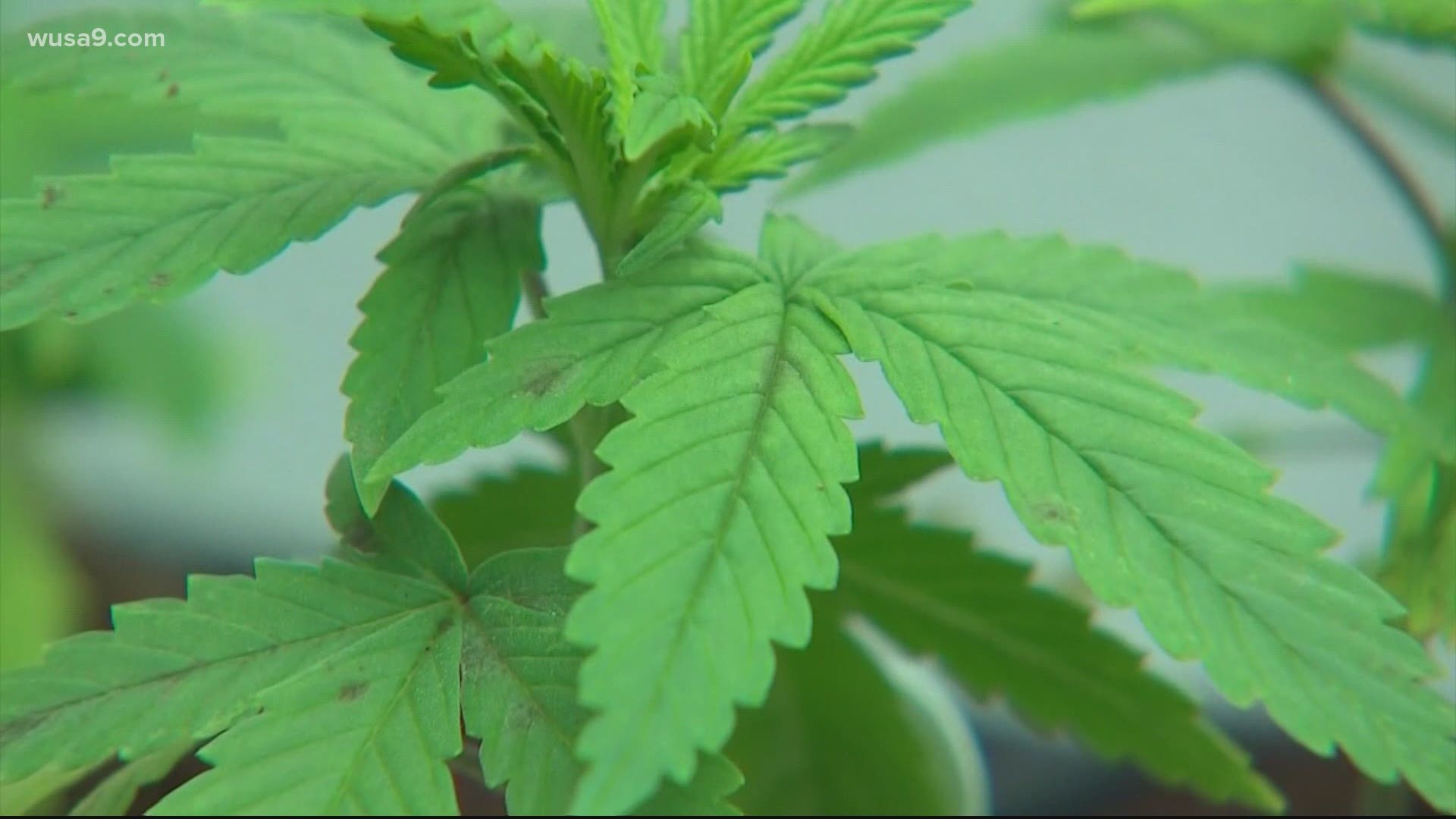FAIRFAX, Va. — People all over the country were celebrating when Sha'Carri Richardson dominated the 100-meter race, coming in first place at the finals while clocking an official time of 10.86 seconds.
With her bright orange hair, long nails and lashes, Richardson was immediately celebrated on social media and many expressed excitement to see her take on the upcoming Olympic Games in Tokyo.
All of that excitement came to an unfortunate halt Friday, after news broke that the 21-year-old would be suspended for one month after she tested positive for marijuana, which the USADA called a performance-enhancing drug. As a result, Richardson will not be able to run the 100-meter race at the Tokyo Olympics.
WUSA9 spoke with Fairfax-based Lipp Law Firm attorney Sarah Mugmon about the challenges Richardson faces.
Mugmon has had a handful of cases from clients facing a similar situation through the years, although she has seen fewer recently as weed has become less stigmatized and legalization policies continue to expand. She explained that although the situation is often extremely unfortunate for both the employee and the employer, a bit of empathy isn’t quite enough to diffuse the situation that ensues when an applicant comes face-to-face with a positive test that’s against company policy.
Mugmon explained that the issue with testing is that the results, whether positive or negative, must be treated in the same way across the board; or else the employer could be opening themselves up to a lawsuit.
“They need to make sure they're implementing consistent policies across the board for all employees, otherwise they could fall into a potential trap,” Mugmon said. “Depending on the protected groups that those employees belong to, whether it's race, sex, religion; some of those things could come into play, if they're treating employees differently, depending on their test results.”
Similarly, Richardson has become subject to a consequence that other athletes have been forced to face in the past. Olympic great Michael Phelps was suspended from competition for three months by USA Swimming and lost a major sponsorship deal after a photo that showed him inhaling from a marijuana pipe surfaced in 2009.
Despite the positive test, it'll now be up to USA Track and Field and the U.S. Olympic Committee to decide whether she can still compete in the Tokyo Olympics in the women's 4x100-meter relay. Preliminaries are set for Aug. 5, which is after her one-month suspension ends.
“Based on current animal and human studies as well as on interviews with athletes and information from the field, cannabis can be performance enhancing for some athletes and sports disciplines,” the United States Anti-Doping Agency (USADA) website’s FAQ section states.
The USADA has thrown even harsher criticism towards Richardson which was highlighted in a recent statement from the agency's CEO Travis T. Tygart.
“The rules are clear, but this is heartbreaking on many levels," said USADA CEO Travis T. Tygart, addressing Richardson's suspension. "Hopefully, her acceptance of responsibility and apology will be an important example to us all that we can successfully overcome our regrettable decisions, despite the costly consequences of this one to her.”
Although we’re not all world-class sprinters, Richardson’s situation is one that may feel familiar to anyone who has had their goals derailed at the result of a positive drug test. The decision has sparked a national conversation and a number of viral tweets on testing for weed, both in sports and offices.
Despite legalization policies like those that have recently been implemented in Virginia in July and those that have been in place in the District since 2015, employers still have the right to do their own testing and hand out consequences as they wish. However, in D.C., there are some restrictions on when an employer can do a test. Employers in the District can only test a prospective employee for marijuana use after a conditional offer of employment unless otherwise required by law.
Mugmon shared that the most common jobs for weed testing these days include federal positions (due to the fact that weed is still federally illegal), those dealing with vulnerable communities, confidential or classified information and people operating heavy machinery.
So why are employers still testing for weed at all?
“The explanation is typically business-related: we want to make sure our employees are able to perform and function to the best of their ability and are not under the influence of anything,” Mugmon said. “The issue with testing is that cannabis stays in your system for 30 to 90 days, depending on the type of testing. So it's not necessarily an accurate indicator of whether that person is under the influence at the time of work hours.”
No matter how hard of a worker you are or how much you aced an interview, a positive test could still be a firm deal-breaker at certain places of employment. What should you do if you do end up with a positive result?
Mugmon advised that if you find yourself facing consequences, it’s probably best to consult with a lawyer to potentially make an argument for why you’re still capable of performing your required job duties.
“[An attorney] can help organize all of the facts and see whether it is worth the fight or whether you want to admit it," she said. "Sometimes it might not be in the best interest to fully explain oneself."
Sign up for the Get Up DC newsletter: Your forecast. Your commute. Your news.
Sign up for the Capitol Breach email newsletter, delivering the latest breaking news and a roundup of the investigation into the Capitol Riots on January 6, 2021.

